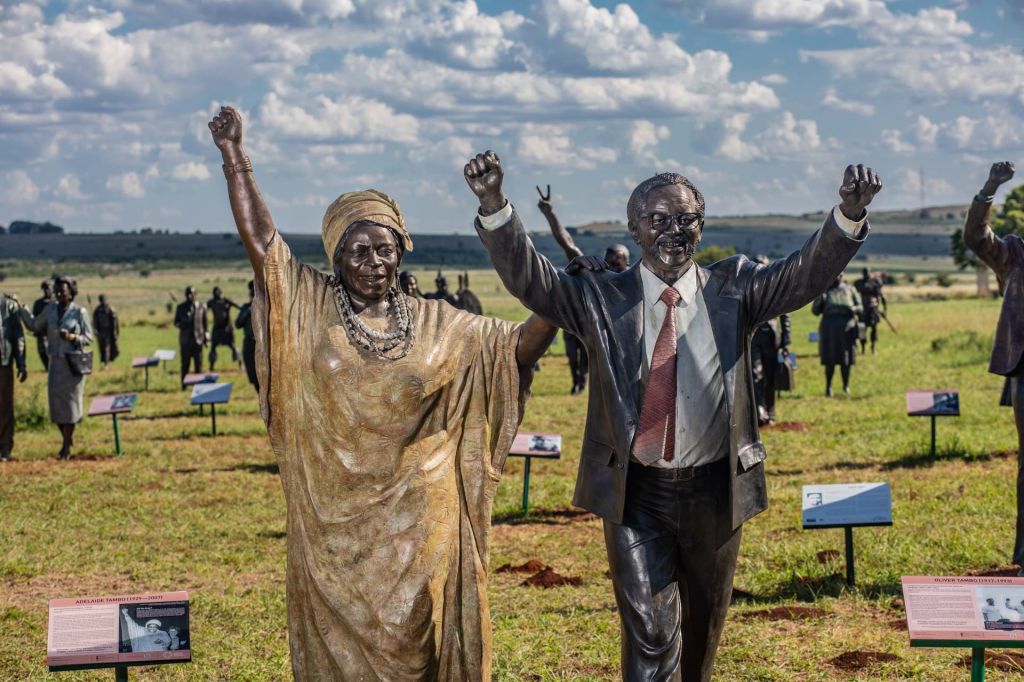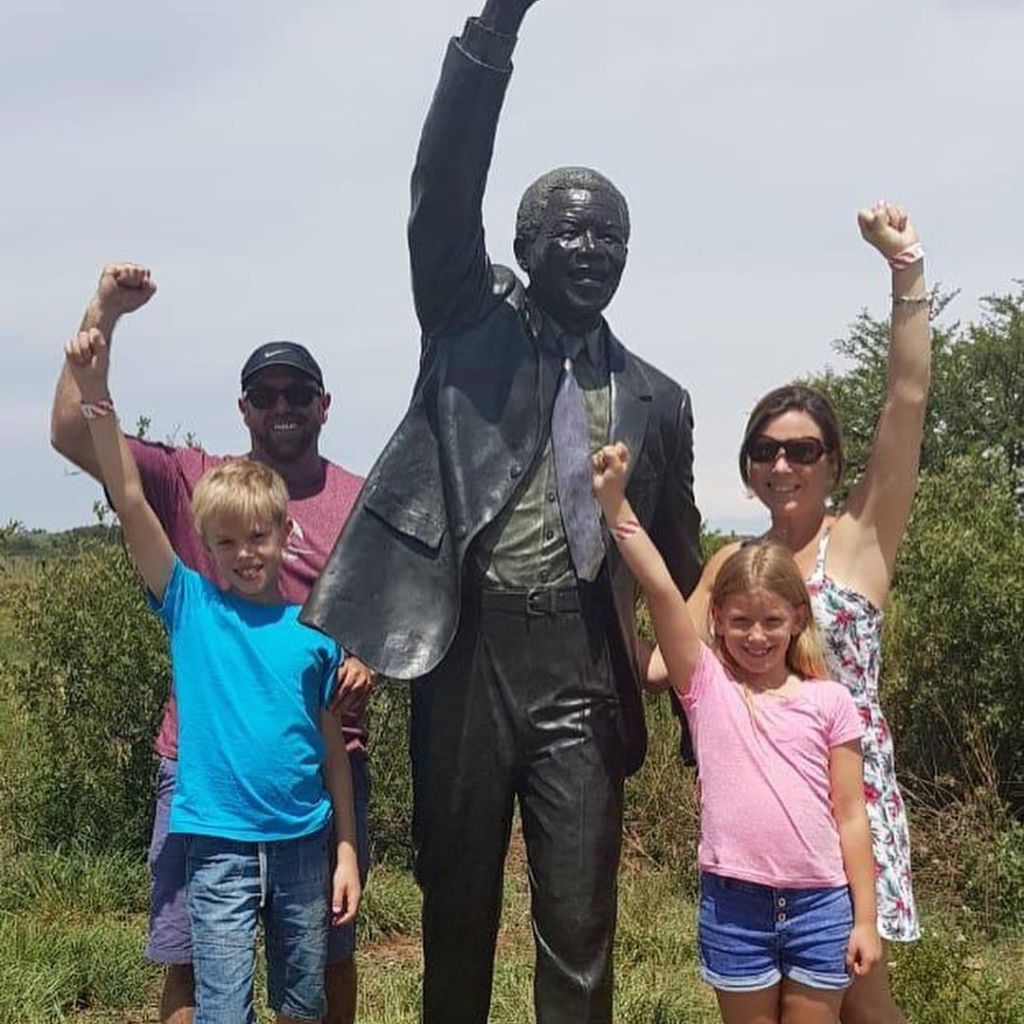A love story: Oliver and Adelaide Tambo

Oliver (1917 to 1993) and Adelaide Tambo (1929 to 2007)
Adelaide Frances Tshukudu met Oliver Reginald Tambo in Johannesburg at a meeting at the Eastern Township branch of the African National Congress. She was a nurse at the Baragwanath Hospital, Soweto, and Oliver a rising ANC politician and partner in the first South African black law practice with Nelson Mandela. Adelaide was already involved in ANC politics when they met, and in later years she would tell her children, “Remember, your father did not introduce me to the struggle; I was already in it when I met him.”
The couple married on 22 December 1956, while Oliver was out on bail after being charged at the start of the Treason Trial. They were aware that either or both of them could be arrested at any time, and discussions around their political involvement were as important as planning a family. The agreement that one would have to do full-time political work and the other would work part-time and take full charge of all family matters would become one of the cornerstones of their marriage.
In 1960 came the Sharpeville Massacre and the subsequent security crackdown and thousands of arrests by the apartheid regime. The ANC feared more attacks on their members and that the banning of the liberation parties would silence the resistance movement. The Tambos were asked by ANC president Albert Luthuli to go into voluntary exile in London and set up an international mission to mobilise international support and opinion against the apartheid state.
In a 1998 interview Adelaide reported her husband saying at the time, “A decision has been taken at the meeting last night that I was to leave the country to tell the world about the atrocities of apartheid here. That I was to take my family with me, because if I left the family, I would be worrying about the family, and my heart would be partly in the struggle, and partly worrying about my family at home.”
For the next 30 years Oliver Tambo, now ANC deputy president and later president himself, criss-crossed the globe establishing ANC diplomatic missions, leading the ANC’s liberation army in exile, and covering 27 countries by 1990. His lobby for support for the ANC raised the organisation’s international reputation to one of great prestige.
Adelaide was true to their agreement, caring for the three Tambo children and extended family, and often working two jobs in London to keep everyone afloat. But she didn’t ever withdraw from political life, tirelessly campaigning and working as a courier for the ANC, founding and leading several solidarity and anti-apartheid movements, and assisting and often funding other South African exiles and their families.
It was a life of true commitment and sacrifice for the couple. In a later interview their son, Dali Tambo, said that their parents adored each other despite being constantly separated owing to Oliver’s activism. “When we first left for London, my father told her that it will only be five years of hardship and activism, but it turned out to be 30 years,” Dali said. “Exile robs you of home and it is culturally destructive, but they made the best of the situation.”
The family’s return to South Africa in 1990 after the unbanning of all political parties was celebrated nationwide. Four years later, Adelaide became an ANC Member of Parliament in the country’s first democratically elected government, but sadly her husband didn’t live to see his dream of a free South Africa realised. He had suffered a stroke in 1982 and on 24 April 1993 another proved fatal. Like Moses, he had led his people to the promised land, but was never able to enjoy the fruits of his toil.
Adelaide Tambo continued to serve her people for the rest of her life and, like her husband, her commitment to the liberation struggle received numerous acknowledgments and awards at home and internationally. She passed away on 31 January 2007 and is buried next to her husband in her hometown of Wattville, east of Johannesburg. At her funeral, Nelson Mandela paid tribute, saying, “Our movement has lost a stalwart, one who represented that greatness of spirit that made it a great organisation.”
Stay with us and celebrate your love this Valentine’s Day. Read about our special offers here.
